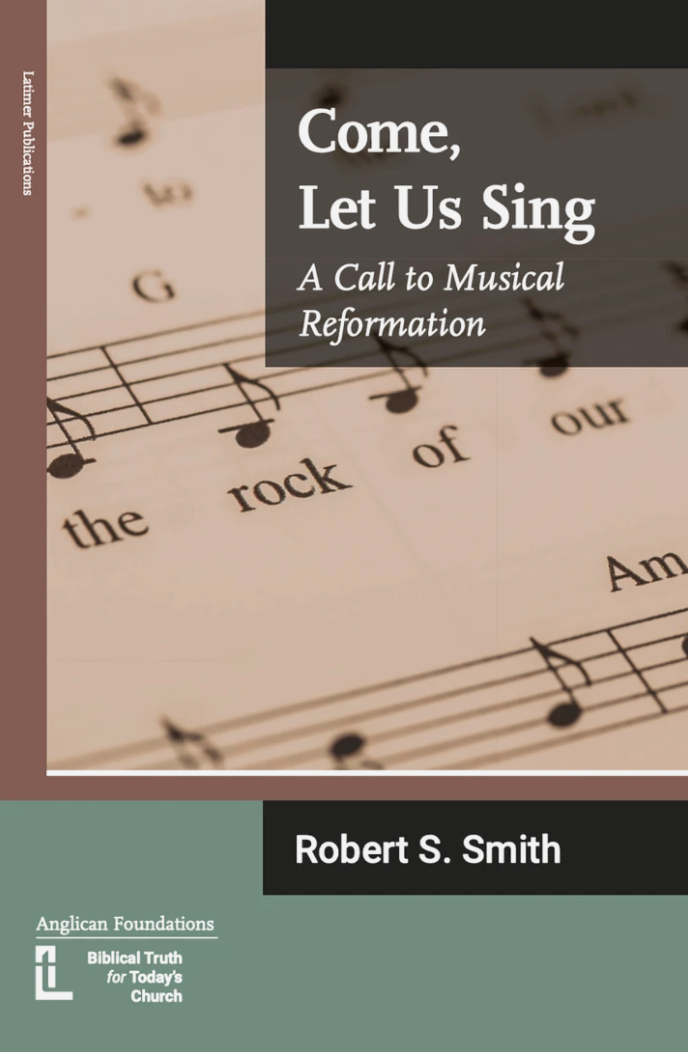Come, Let Us Sing
By Rob Smith (Latimer Trust)
It’s a weird time for singing as Christians. Social distancing laws have changed the way we sing at church, and singing along to a livestream service in your living room doesn’t have quite the same impact as being surrounded by the saints while belting “Amazing Grace”, “Man of Sorrows” or “Jesus Loves Me”.
If you’re also longing to sing with the saints, it’s a good time to consider why singing is such a vital part of how we do church. Rob Smith’s new book Come, Let Us Sing helps us do just that. This book is a call to musical reformation. It reminds us why worship in song form is regarded as a crucial part of our gathering – as a way of offering praise to God, a form of corporate prayer, and an act of preaching the truths of God to our brothers and sisters.
“Singing is not simply the time we stand up and stretch in order to concentrate on the coming sermon.”
The book is published in a series called Anglican Foundations, which is produced by the Latimer Trust. The purpose of this series is to provide “practical guidance on Church of England services”. With this in mind, Smith explores in depth the historical path that has led us here, from the Reformation to the early 2000s. He unpacks the theological reasons behind why we sing in the way we do, where we have come from and how we might continue on.
In particular, he highlights the need for multiple people to be instigators of this musical reformation within the service. He calls pastors and leaders of the church to be educated about the place of music in the service and to convey why we sing to the congregation.
 Singing is not simply the time we stand up and stretch in order to concentrate on the coming sermon. Rather, it is part of the teaching that occurs within a service. Smith calls musicians to resist the urge to be swayed by popular trends. Instead musicians should, with wisdom, humility and skilful handling of their instruments, thoughtfully select songs that will serve the people of God well. All of this is within the context of singing being a support for the reading and teaching of the word.
Singing is not simply the time we stand up and stretch in order to concentrate on the coming sermon. Rather, it is part of the teaching that occurs within a service. Smith calls musicians to resist the urge to be swayed by popular trends. Instead musicians should, with wisdom, humility and skilful handling of their instruments, thoughtfully select songs that will serve the people of God well. All of this is within the context of singing being a support for the reading and teaching of the word.
However, he says the book is not just for leaders and musicians but also the congregations themselves. An understanding of the place of song in our services equips every member of the church to praise, pray and preach through singing.
Why another book on music in church? Come, Let Us Sing serves the Christian who wants to understand the place of music in the service, and is a solid offering of musical advice and wisdom rooted in Scripture. For Christians who have already read several evangelical books on music ministry, this makes some helpful additions to discussions around choice of song, leading a congregation well and how to shape your church’s understanding of musical worship to be a tool for edification – the goal of our gatherings. The concepts explored are beneficial to all those who participate in the ministry of singing to God and one another.























